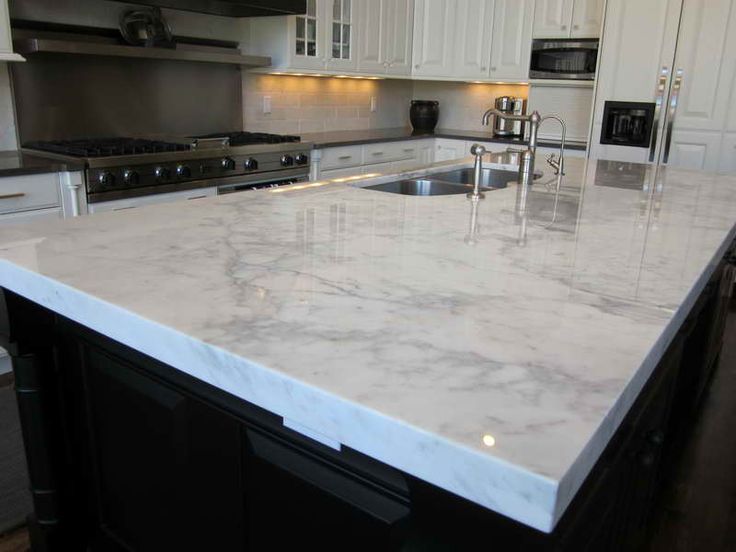 Kitchen Countertops: Granite or Quartz
Kitchen Countertops: Granite or Quartz
On the fence about what countertop type would look, work, and feel best in your kitchen? Most people in Toronto look to granite and quartz counters for their incredible aesthetics and build quality. Before you can begin to choose which kitchen countertop will best suit your home, you need to understand the differences between granite and quartz.
Here are some of the most notable traits of each counter type:
Characteristics of Granite
As granite is a natural occurring igneous stone, every granite countertop will have its own distinct look that is dictated by how the granite is formed. Of course, once a slab of granite is polished to perfection, any unique granite surface shines with an impressive and refined elegance. Because of granite’s tendency to have varying colours and patterns, you cannot expect a precise look and the countertop you receive will likely look different from the sample you were eyeing. As for durability, a granite kitchen countertop is always a safe bet; this naturally formed material is widely regarded as one of the hardiest countertop materials available. Granite will easily fend off fading, stains, and other types of damage with the right amount of care and maintenance. It is also more heat resistant than quartz, which may become discoloured when exposed to excess heat from pots and pans.
Characteristics of Quartz
On the other hand, quartz is often an equally valid choice for your new kitchen countertop. Whereas granite is naturally occurring and refined through a polishing process, quartz counters are wholly engineered from quartz crystals and resin. This means that quartz counters can be manufactured to produce an extensive variety of colours. Also, since quartz countertops are engineered, you can expect a sense of uniformity in the overall look of the counter and it will look closer to the samples at the stores (unlike granite). Quartz is also every bit as durable as granite and is even less likely to stain. For longevity’s sake though, you should keep in mind that a quartz countertop is far more susceptible to fading and discolouration when in direct sunlight for prolonged periods.
Factors to Consider When Deciding on a Countertop
While the traits, aesthetics, and price of a countertop can all be noteworthy things to consider, you should also think about what will suit your kitchen and house as a whole. Finding the perfect colour or pattern to blend with your appliances and paint choices could make the decision for you. Perhaps you’re leaning toward granite because your kitchen is exposed to an abundance of sunlight? Maybe the exclusive look of a granite slab isn’t for you and you prefer to know exactly what your counter is going to look like?
At the end of the day, both granite and quartz countertops are ideal choices for a kitchen and you simply need to find the material that best suits your specific needs. Just remember to properly clean and maintain your countertop, and you will have a gorgeous kitchen for many years to come.
- 5 Reasons to Buy Granite Kitchen Countertops
- The Pros and Cons of Marble Kitchen Countertops
- Should You Install Your New Kitchen Countertop by Yourself?
- 9 Reasons to Choose Quartz over Granite for your Kitchen Countertops
- Choosing the Right Kitchen Countertop Material
- Why You Should Buy Engineered Stone Kitchen Countertops
- What You Should Know About Replacing Your Kitchen Counters
- Which Is Better for My Kitchen Countertops: Granite or Quartz?
- Hottest Trends for Kitchen Counter Tops in 2016
- Budgeting for Certain Types of Kitchen Countertops
- Advantages and Drawbacks to a Granite Kitchen Countertop
- Modernizing Your Kitchen with New Countertops
- What You Gain from Investing in Kitchen Countertops
- The Creation Process: How Granite Kitchen Countertops Are Made
- Guidelines to Follow When Maintaining Your Kitchen Countertop
- 6 Things to Consider When Shopping for Kitchen Countertops
- A Look at Some Rare and Exotic Kitchen Countertops

